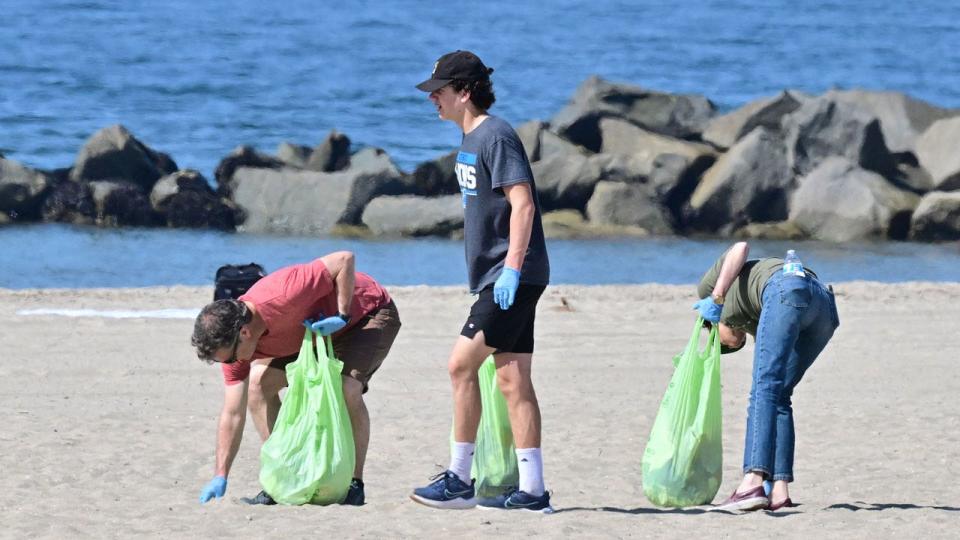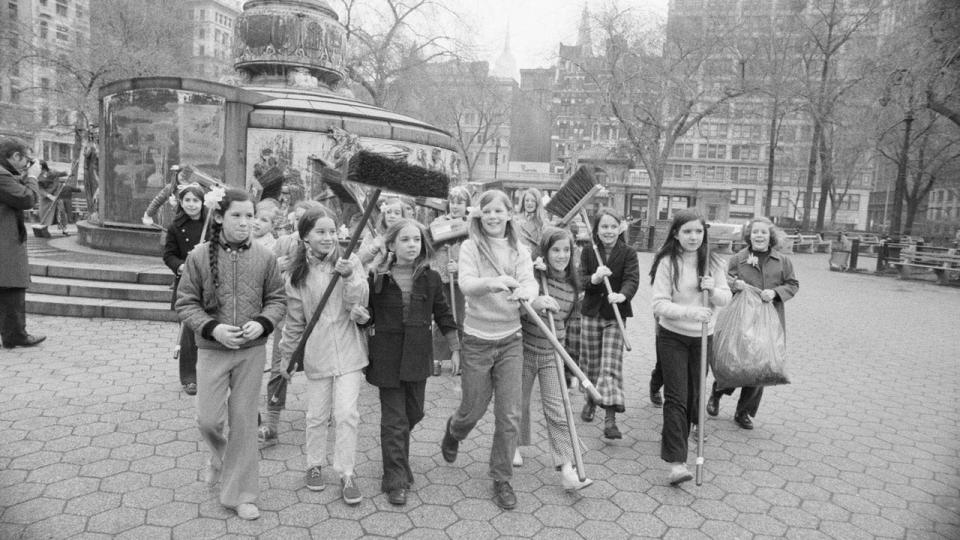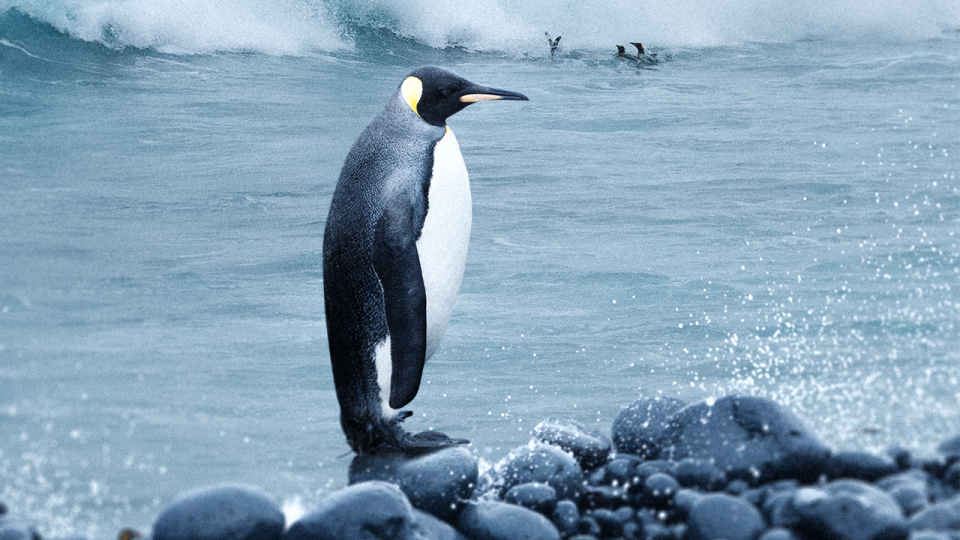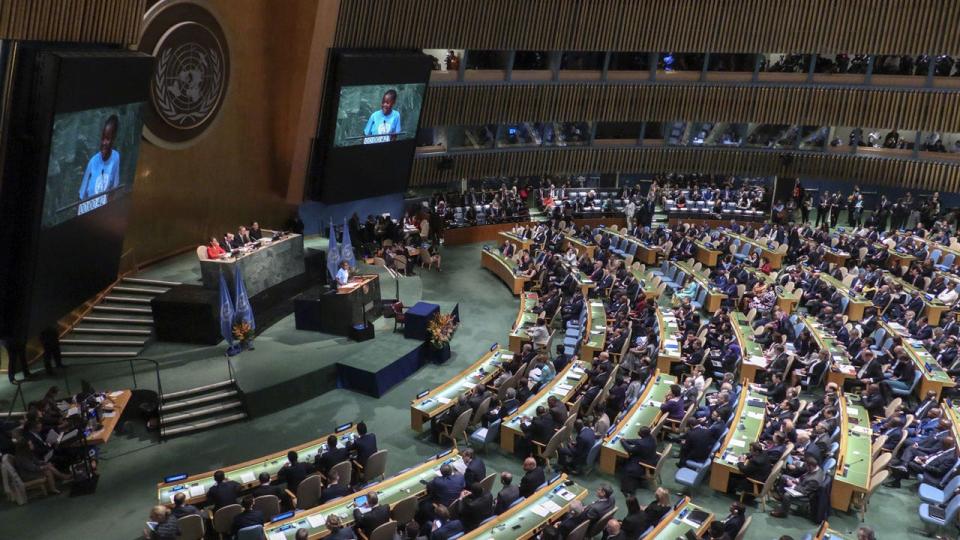5 quick Earth Day facts you might not know

Earth Day is one of the most popular and widespread nonreligious holidays in the world.
Although the event was primarily based in the United States, by 2009 the coordinators for Earth Day helped gain recognition from the United Nations.
Earth Day has played a key role in passing essential laws that protect wildlife and the environment, such as the Clean Air Act, the Clean Water Act and the Endangered Species Act.
10 WAYS TO CELEBRATE EARTH DAY
While Earth Day is beloved by many, the holiday has a storied history that is less well-known.
Here are five facts to know.
Earth Day is recognized across the world by nearly 200 nations and is celebrated by over a billion people every year.
In the United States alone, over 95% of all primary and secondary education facilities take part in observing the holiday annually.

The popularity and widespread celebration of Earth Day have made it the most popular secular observance in the world, inspiring global environmental conservation efforts.
The founder of Earth Day was Democrat Wisconsin Sen. Gaylord Nelson.
The holiday was inspired by one of the worst ecological disasters in U.S. history.
In Jan. 1969, an oil well off the coast of California near Santa Barbara exploded, gushing more than 3 million gallons of oil into the Pacific Ocean.
The disaster killed over 10,000 dolphins, seals, sea lions and seabirds — leading to an outcry from environmental activists.
20 SUSTAINABLE PRODUCTS YOU SHOULD SWITCH TO THIS EARTH DAY
Nelson decided to inspect the damage caused by the oil platform via airplane and saw the extent of the harm done to sea life.
Moved by what he witnessed, Nelson worked with environmental activists to organize and create the first Earth Day celebration.
Nelson and others wanted to educate Americans about their impact on the Earth's environment to help pass new environmental regulations. Many high-profile activists supported Nelson's decision to create the observance, such as Marc McGinnes and Selma Rubin.

The Jan. 1969 oil disaster shocked the nation and led to the passage of further government oversight of the oil industry to ensure that future disasters on that scale would not happen again.
The outcry and celebration of Earth Day inspired the creation of the Environmental Protection Agency and the National Oceanic and Atmospheric Administration.
Nelson worked with a young activist named Denis Hayes to coordinate the first Earth Day, primarily in the United States, through a series of teach-ins, protests and marches all across the country.
Nelson decided to hold the first Earth Day on April 22 because it fell between spring break and final exams for most college students.
He wanted to attract as many young people as possible to support the event.

The organizers of the first Earth Day were soon able to expand the event nationwide and lead to the biggest protest in recorded human history, with more than 20 million people taking to the streets to protest for environmental justice and other issues of the time.
TROPICAL FOREST LOSS DECREASED IN 2023 BUT GLOBAL THREATS REMAIN, DATA SHOWS
Over 10,000 public schools and 2,000 colleges and universities participated in the first Earth Day celebration. Labor unions and anti-war activists were also huge allies in the celebrations and protests during Earth Day 1970.
The enthusiasm and support for young people were crucial and led to new environmental safety regulations and agencies.
In total, approximately 10% of the population of the U.S. took part in the first Earth Day.
Hayes, who helped organize the first Earth Day with Nelson, was approached to lead another campaign for Earth Day's 20th anniversary. What resulted was a massive campaign spanning 141 countries that mobilized 200 million people.
Armed with the marketing capabilities of television, radio and millions of dollars in funding, the campaign highlighted environmental issues on a global scale, furthering recycling efforts worldwide and setting the stage for the 1992 United Nations Earth Summit in Rio de Janeiro.
Earth Day 1990 also spurred President Clinton to present Nelson with the Presidential Medal of Freedom, the highest civilian honor in America, for his efforts in founding Earth Day.

The Paris Agreement is a legally binding international treaty under the United Nations Framework Convention on Climate Change. It opened for signature at the U.N. Headquarters in New York City on Earth Day in 2016.
The Paris Agreement entered into force on Nov. 4, 2016.
CLICK HERE TO SIGN UP FOR OUR LIFESTYLE NEWSLETTER
Today, 195 parties have signed and ratified the agreement.
It aims to limit global temperature increase to below 2 degrees Celsius, preferably no higher than 1.5 degrees, among other goals.
Phillip Nieto contributed reporting.
For more Lifestyle articles, visit www.foxnews.com/lifestyle.
Original article source: 5 quick Earth Day facts you might not know
